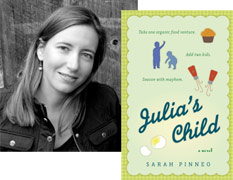We have become a nation of short attention spans. If you hand us a tome filled with paragraphs that go on for pages, we will snore. Our eyes will glaze over.
 |
| Image courtesy of marin at FreeDigitalPhotos.net |
And skimming is right up there on the list of Things Writers Fear, along with rejections and bad reviews and computers that fail to back up our files. We crave variety. We desire entertainment. We want to be—nay, demand to be—hooked and hooked hard.
But it’s not enough to write a great story and write it well. True, you become a literary artist when you write a novel, but you can't stop there. You also have to be a visual type of artist and learn how to artfully arrange your prose on the page.
Making the page user-friendly will reduce reader fatigue and prevent skimming. Here’s a few ways you can break up big, clunky blocks of text.
Break up dialog with description/action. Have you ever zoned out while someone went on and on and on without pausing for breath? No matter how good the story is, your ears get bored. Books shouldn’t read like a bad RPG, where characters walk into the room, stand perfectly still, and give a speech. Real people move and gesture and fidget. They do stuff while they talk. My advice: keep it real and mix it up. Animation makes for great reading.
Break up description/action with dialog. I am going to admit that, when browsing in an actual bookstore (where I can pick up real books and flip through real pages) one of my criteria for deciding to buy a book is based on how much dialog it has. Exactly how much dialog should be in a book is debatable. However, if I pick up a book and find a lot of pages without dialog, I’ll probably put it back on the shelf and move on. Long sections of descriptions or setting or even action tend to lose me because I crave dialog or at least internalization. It’s not enough to read about a story. I want to know what the characters have to say or think about what’s going on.
Break up long sections into easy-to-manage paragraphs. One simple way to do this is to give each character the stage by writing only one person’s dialog per paragraph. When another character must speak, hit the carriage return and give them their own paragraph. First of all, it helps lessen confusion when a scene has more than one character. More importantly, it helps the pacing—because smaller paragraphs are easier to read and thereby facilitates reading. Fast reading is part of good pacing. (I know it sounds glib but think about it: if you are asked to read something and are then handed a page that has huge blocks of text, your first impression is probably going to be UGH. This will take forever.)
Less is more: White space is necessary. I’m guessing that, back in the day of hand-setting type and printing individual pages on a mule-driven press, the key to expedience and frugality was cramming as many words on a single page as possible. No more. This is the digital age. Spread it out. Don’t overwhelm a reader by making your novel read like a text book or, worse yet, an eighteenth-century pamphlet. White space gives our eyes room to breathe and gives the words room to sink in.
Vary your punctuation. This is also a great way to make the page aesthetically pleasing. The first two tips above involve dialog—and dialog needs quotation marks. Not only do quotes serve the utilitarian purpose of setting off dialog, they are also artistic embellishments. While you’re at it, be sure to use other types of punctuation. Don’t be afraid of em dashes and ellipses. Parentheses are cool, too, as are italics. (But beware of exclamation marks. Overuse of those pointy buggers is just not cool. And, yes, I know I used one in the title. The irony is not lost on me.) It does mean you have to learn the rules for using each device, but the pay-off? Varying your punctuation is like giving your reader eye candy. Who doesn’t like candy?
Just as your story needs to be broken up into chapters for easy digestion, your chapters need to be artistically arranged into eye-pleasing pages. Reading fiction shouldn’t be a chore. We don’t pick up novels because we want to labor through it. We want to enjoy what we read, not put our eyes through calisthenics.
You, as the author, have to give us a story we want to read…and won’t get tired while reading it.
Share it! Click to Tweet...
Are you guilty of causing reader fatigue? Here's a remedy or two...
Ash Krafton is a speculative fiction writer who, despite having a Time Turner under her couch and three different sonic screwdrivers in her purse, still encounters difficulty with time management. Visit Ash at www.ashkrafton.com for news on her urban fantasy series The Books of the Demimonde (Pink Narcissus Press) or stop by the Demimonde Blog at www.ash-krafton.blogspot.com .










